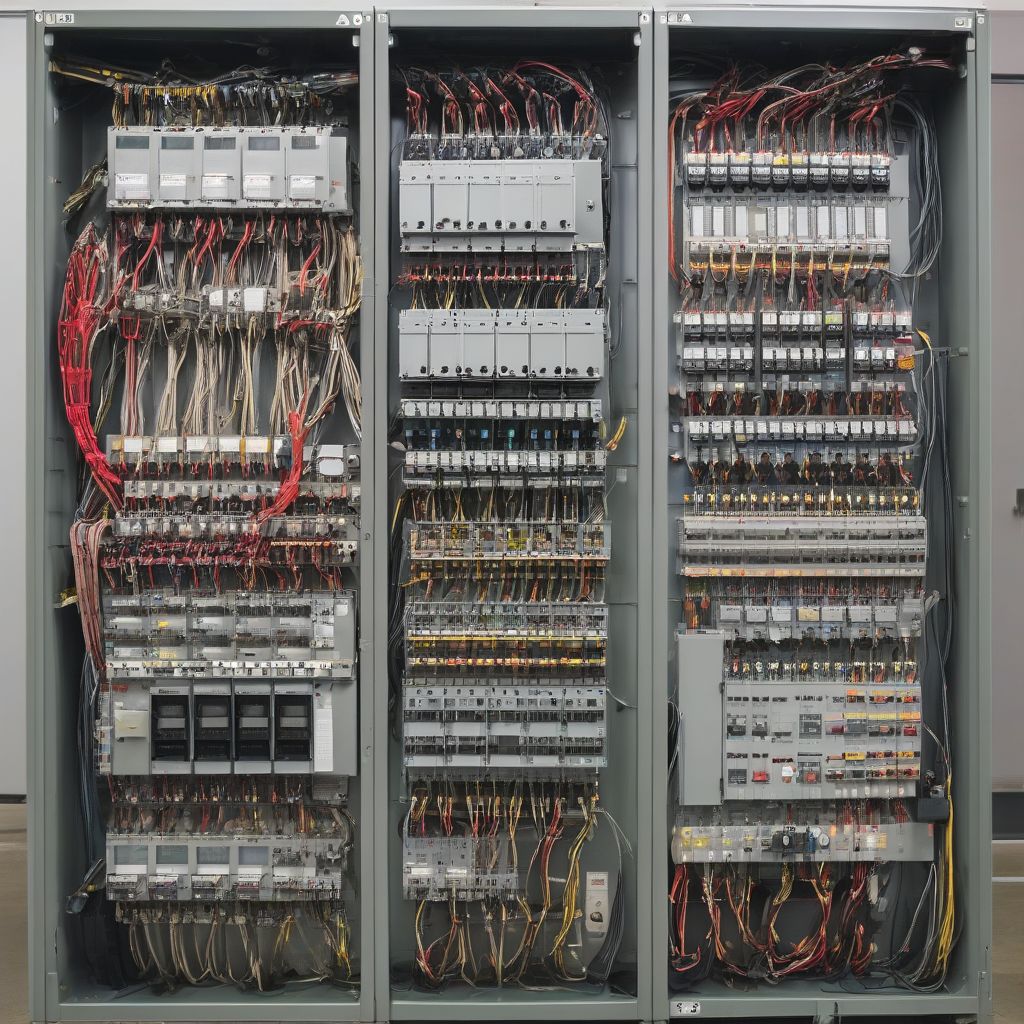The energy industry is a vast and complex network of producers, distributors, and consumers. At its heart lies the wholesale electricity market, a dynamic arena where electricity is bought and sold in bulk before it reaches homes and businesses. While “Stanion Wholesale Electric” may not be a widely recognized industry term, it presents an opportunity to delve into the critical aspects of wholesale electricity and its impact on various sectors.
Decoding Wholesale Electricity: The Backbone of Energy Supply
Before we explore the nuances of “Stanion Wholesale Electric,” it’s crucial to grasp the fundamentals of the wholesale electricity market. This market serves as a bridge between power generators (like traditional power plants and renewable energy facilities) and retail electricity suppliers, who ultimately deliver power to end-users.
Here’s how it works:
- Generation: Power plants generate electricity using various sources, including natural gas, coal, nuclear, hydro, wind, and solar.
- Wholesale Market: Generators sell their surplus electricity on the wholesale market through competitive bidding processes.
- Retail Suppliers: Retail electricity providers purchase electricity from the wholesale market to meet the projected demand of their customers.
- Distribution: Electricity is transmitted through a network of high-voltage power lines to local distribution companies.
- End Users: Finally, electricity reaches homes, businesses, and industries, powering our daily lives.
The Significance of Wholesale Electricity:
- Competitive Pricing: Wholesale markets foster competition among power generators, potentially leading to lower electricity costs for consumers.
- Reliability: A well-functioning wholesale market ensures a reliable supply of electricity by balancing supply and demand in real-time.
- Integration of Renewables: Wholesale markets are instrumental in integrating renewable energy sources, which often have variable output, into the grid.
Exploring the Potential Meaning of “Stanion Wholesale Electric”
While “Stanion Wholesale Electric” itself might not be a universally recognized term, it likely points to a few possibilities within the context of the energy industry:
- A Company or Brand Name: It’s possible that “Stanion Wholesale Electric” refers to a specific company operating within the wholesale electricity sector. This company might be a power generator, a trader, or a service provider facilitating transactions in the wholesale market.
- A Location-Specific Term: “Stanion” could be a geographical location, implying a regional wholesale electricity market or a power generation facility situated in that area.
- An Industry-Specific Phrase: In specialized industry circles, “Stanion Wholesale Electric” might represent a particular trading strategy, a type of contract, or a technical term related to wholesale electricity operations.
FAQs about Wholesale Electricity
1. What factors influence wholesale electricity prices?
Numerous factors impact wholesale electricity prices, including:
- Fuel costs: Prices of natural gas, coal, and other fuels directly affect generation costs and, consequently, wholesale prices.
- Supply and demand: Fluctuations in electricity demand and the availability of generation capacity significantly influence prices.
- Weather conditions: Extreme temperatures (heatwaves, cold snaps) often lead to increased demand for electricity, impacting prices.
- Transmission constraints: Limitations in the electricity transmission system can create price disparities between regions.
2. How are renewable energy sources changing the wholesale electricity market?
The increasing adoption of wind and solar power is transforming the wholesale electricity landscape:
- Price Suppression: Renewables, with their low operating costs, can lower wholesale electricity prices, especially during periods of high generation.
- Grid Management: Integrating variable renewable energy sources requires sophisticated grid management strategies to balance supply and demand effectively.
- Market Design Adaptations: Wholesale markets are adapting to accommodate the unique characteristics of renewables, such as their intermittency.
3. What is the role of energy storage in wholesale electricity markets?
Energy storage systems, like batteries, are becoming crucial for:
- Smoothing Renewable Intermittency: Storing excess renewable energy when it’s abundant and releasing it when needed enhances grid reliability.
- Providing Ancillary Services: Storage can help regulate frequency and voltage, supporting grid stability.
- Arbitrage Opportunities: Storage operators can buy and sell electricity in wholesale markets, capitalizing on price differences.
The Future of Wholesale Electricity: Trends and Considerations
The wholesale electricity sector is poised for continued evolution, driven by:
- Decarbonization Efforts: The transition to a cleaner energy system will necessitate greater integration of renewable energy sources.
- Technological Advancements: Smart grid technologies, advanced energy storage solutions, and blockchain-based trading platforms will shape the future of the wholesale market.
- Market Design Reforms: Ongoing efforts to enhance market efficiency, resilience, and transparency will continue to influence wholesale electricity dynamics.
Conclusion
While the exact meaning of “Stanion Wholesale Electric” may remain open to interpretation, it provides a springboard to explore the complexities and significance of the wholesale electricity market. As we navigate a future increasingly reliant on clean and sustainable energy sources, understanding the intricacies of wholesale electricity will become paramount. By fostering competition, encouraging innovation, and facilitating the integration of renewables, the wholesale electricity market plays a pivotal role in shaping a reliable and affordable energy future.

